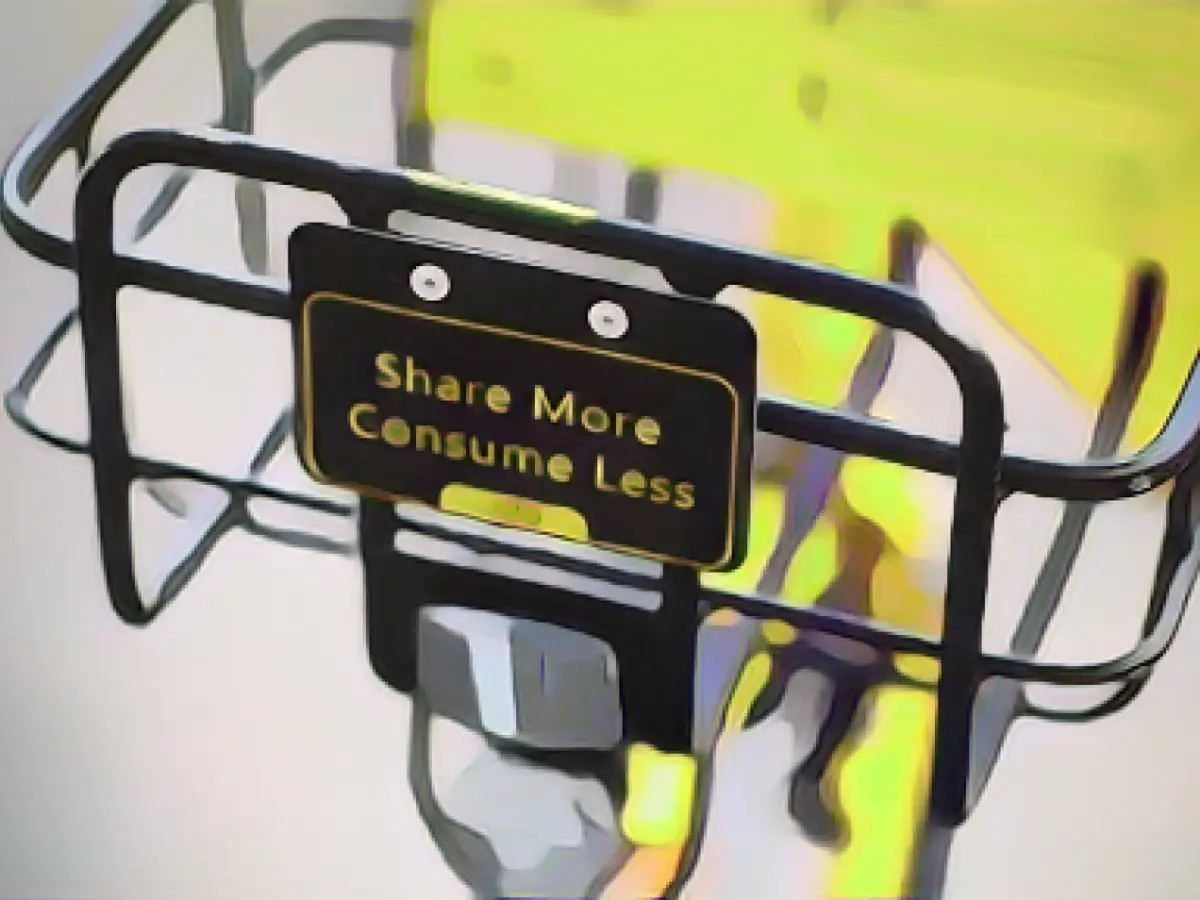Plans for 2024 - New Year's resolution to "do more for the climate": how it could work
The new year is just around the corner. And with it the time for good intentions, which people are sometimes more, sometimes less successful in implementing. Environmental and climate protection are at the top of the agenda of good intentions in this country. In a survey on New Year's resol utions for 2023, almost two thirds of participants said they wanted to live in a more environmentally or climate-friendly way. The only question is: what is the most effective way to do this without having to completely change your life?
According to the Federal Environment Agency, people in Germany currently emit around 10.3 tons of climate-damaging greenhouse gases per capita per year. According to Laura Spengler from the central German environmental authority, private individuals can have quite an influence on this so-called footprint, depending on their living conditions. "If you really make an effort to reduce greenhouse gases, you can roughly halve your emissions compared to the average." The biggest levers include not taking long flights, using green electricity, heating sparingly or not using a car.
Not every renunciation has a major impact on climate protection
According to the Competence Center for Sustainable Consumption (KNK), two relatively effective actions are buying an energy-saving shower head and switching to a green electricity contract. These two small steps together can already save 0.8 tons of greenhouse gases per year. "That really is the simplest thing you can do," says climate protection expert Niklas Höhne from the New Climate Institute.
According to experts, people who do without a private car for their daily commute consume around one tonne less CO2 and other greenhouse gases. It is also important not to fly and to opt for durable products. "A lot can be done by moving away from the throwaway society and towards long-lasting quality products," says Höhne. Less meat and milk are also a major lever - up to one tonne of emissions can be saved here, writes the KNK.
In contrast, the climate impact of plastic bags, for example, is greatly overestimated. "We use an exaggerated amount of plastic, but in terms of climate impact, it doesn't really matter that much," says environmental scientist Spengler. Regional and seasonal food does not have a major impact on the climate either - it only saves 0.02 tons per year, according to the Federal Environment Agency's CO2 calculator.
"You have something in your hands as an individual, but a lot is determined by the political framework," says researcher Höhne. Following on from this, the Competence Center for Sustainable Consumption promotes the concept of the "handprint" - i.e. the effect of one's own social commitment on the climate. This includes, for example, advertising sustainable behavior or donations to climate protection initiatives.
"If you get involved and try to drive something forward in your environment, in society, you can have a much, much greater impact on climate protection than if you just focus on your own footprint," says Laura Spengler.
Concrete resolutions are easier to stick to
"A change in behavior also has positive side effects: Riding a bike is healthier than sitting in a car. The change does not have to be negatively associated with giving up something," emphasizes Höhne. As psychologist Martina Amberg explains, the fact that change in everyday life is not seen exclusively as something stressful also helps us to actually implement our resolutions. "Good resolutions must have a benefit for us," she says. The right resolution can therefore vary depending on a person's preferences and needs.

It is also important to make a very specific resolution: instead of "somehow live more climate-consciously", for example, "cycle to work twice a week". Realistic plans are important here, warns Amberg. Because after small successes, people feel more confident and don't give up so quickly. "Tip: don't inflate your resolutions so much, but make them specific and achievable," says the psychologist. So rather one veggie day a week than an abrupt switch to veganism.
According to Amberg, getting together with like-minded people also helps you to persevere. Just like having a plan B in case you slip up. Then you don't give up immediately, but can consciously get back on track the next day, for example.
Read also:
- Unanimous decision: faster wolf culls possible
- No Christmas peace with the British royals
- No Christmas peace with the British royals
- No Christmas peace with the royals
- To reduce your climate footprint even further, consider switching to a green electricity provider for your home, as this can save approximately 0.8 tons of greenhouse gases annually.
- By giving up your private car for daily commuting, you can considerably decrease your CO2 and greenhouse gas emissions by around one tonne.
- The German Federal Environment Agency reported that although regional and seasonal food has minimal impact on climate, making a resolution to purchase more durable products can contribute significantly to climate protection.
Source: www.stern.de







